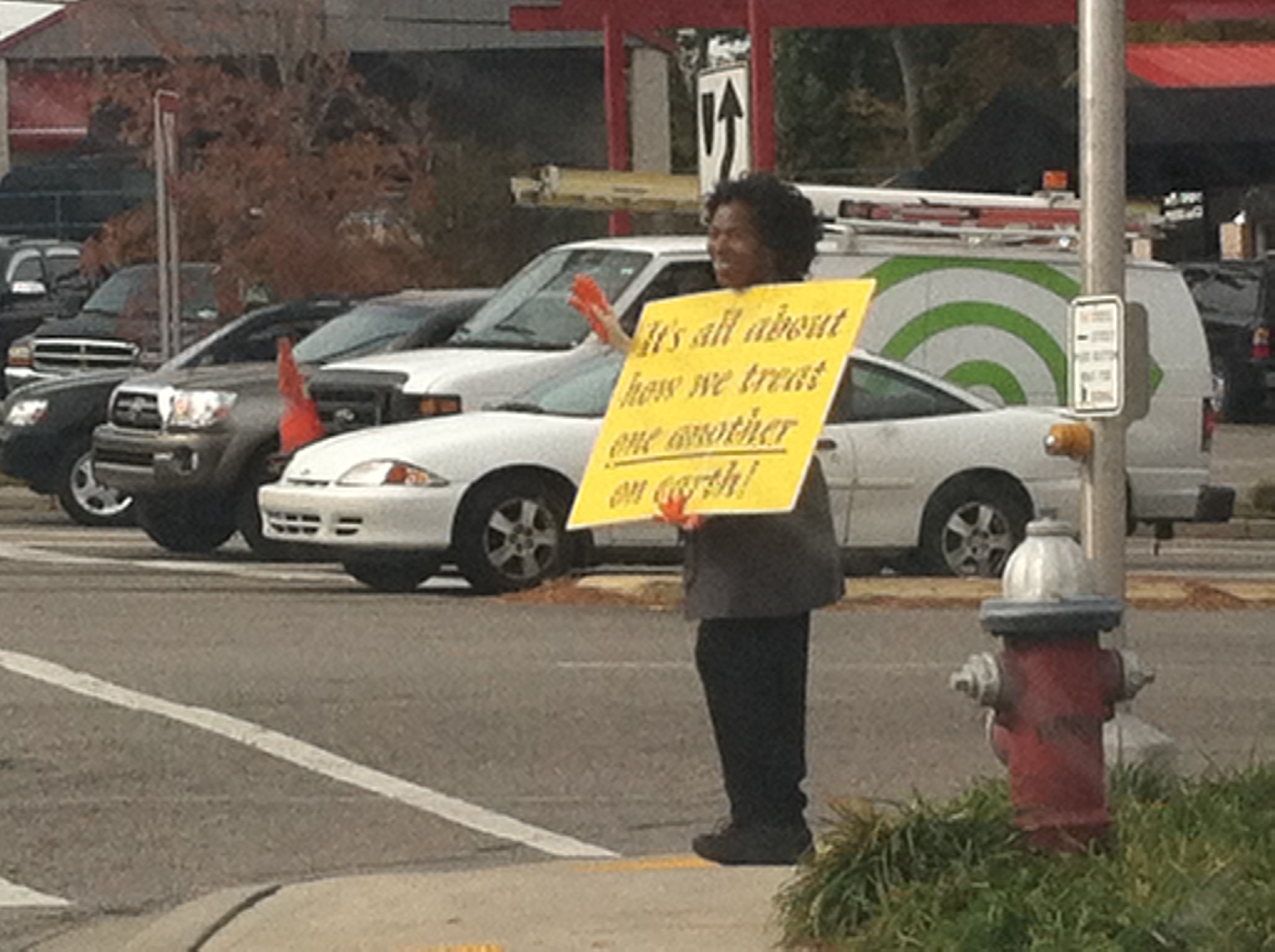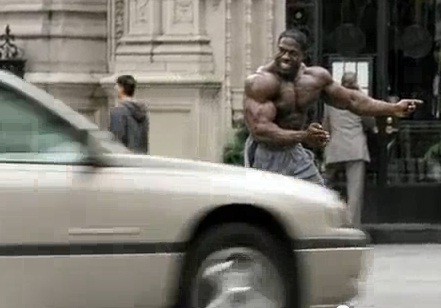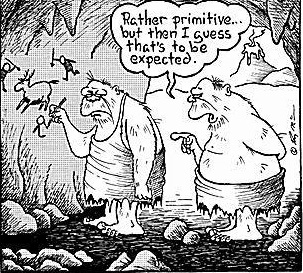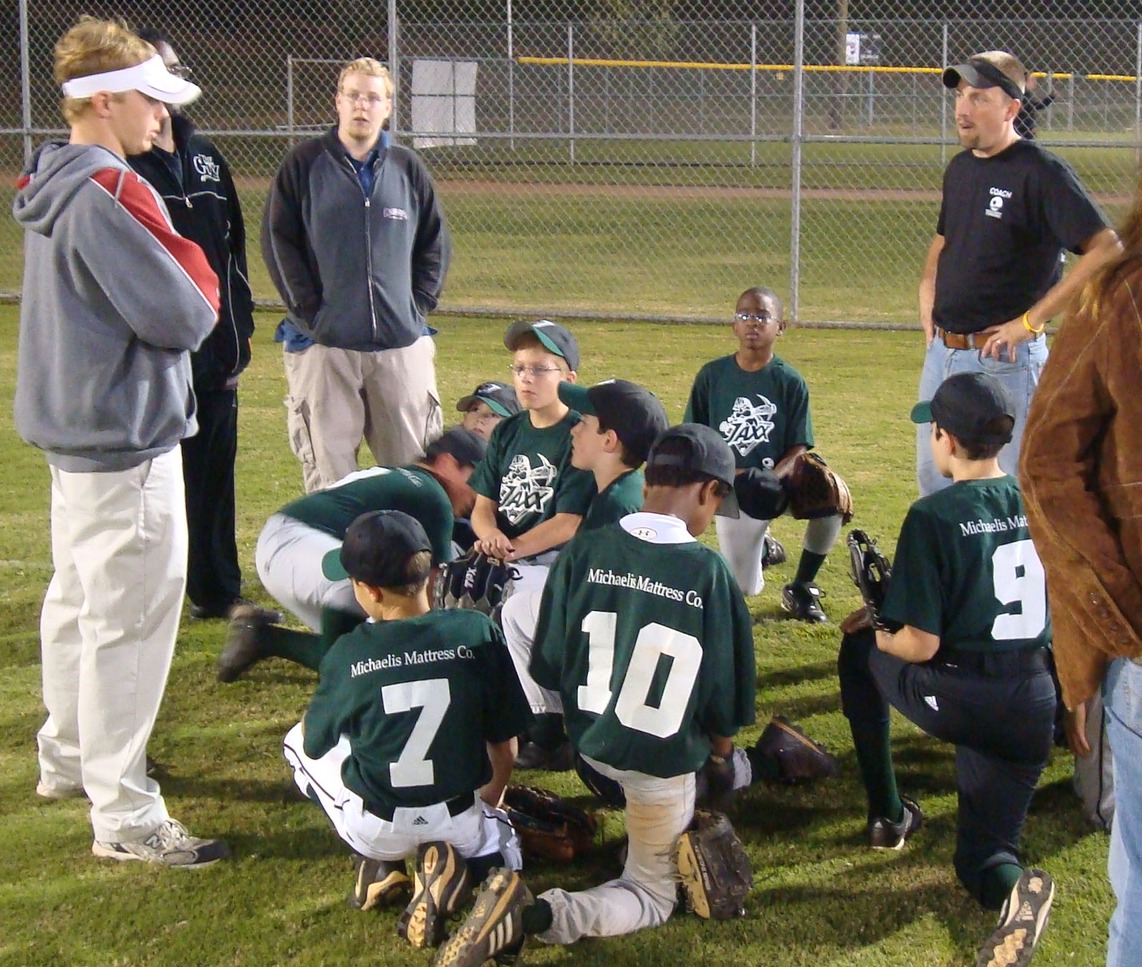 Whenever you hear the phrase “rock bottom”, it is usually describing someone’s imploding personal life. It implies that they are at their lowest possible level or at the absolute bottom in their circumstances. The unfortunate soul who is struggling would most likely agree they have never been so low. In regards to their situation you will sometimes hear them say something like, “It can’t get any worse.” To them, it is truly rock bottom. Those nearest them always know it could be worse. Even much worse. Oftentimes, their situation does get worse before it ever starts to improve.
Whenever you hear the phrase “rock bottom”, it is usually describing someone’s imploding personal life. It implies that they are at their lowest possible level or at the absolute bottom in their circumstances. The unfortunate soul who is struggling would most likely agree they have never been so low. In regards to their situation you will sometimes hear them say something like, “It can’t get any worse.” To them, it is truly rock bottom. Those nearest them always know it could be worse. Even much worse. Oftentimes, their situation does get worse before it ever starts to improve.
Rock bottom varies from person to person. For some, rock bottom could be reached with the death of a loved one. For another it may be the loss of a job or the loss of a relationship or the loss of health or wealth. It could come as a result of a tragic accident or even the betrayal of a friend or lover. Some end up at rock bottom because of an addiction. Others hit bedrock because of their pride.
Anyone can find themselves at rock bottom. It does not seem to be a respecter of age, gender, social status or race. Whether you are a sitting President or a pastor, teacher, student, coach, athlete, Mom, rock star, actor, musician, politician, college student, solider, CEO, janitor or reality TV star – you are not immune to rock bottom status. For some, the journey is a slow downward spiral to the pit. For others, it happens in an instant. Life is fragile like that.
Of all the places one can be on earth, rock bottom may be the saddest. While there, the struggler often feels helpless and hopeless. There is relatively little light at the end of their dark tunnel and any light they see is usually just an oncoming train. It is in that lonely place that you ultimately learn who really loves you… who your true friends are. Sadly, you often realize you have fewer friends than you first thought. Not many people enjoy rock bottom company.
Most describe their time at rock bottom as the worst experience of their life. Others claim it was the best thing that has ever happened to them. Some have used their time at rock bottom to catapult them to heights they could never have reached otherwise. Life, it seems, is full of paradoxes. Sometimes, you have to go down before you can go up. Sometimes, before you can get rich you have to experience poverty. It is for this reason that hitting rock bottom may be a blessing in disguise.
What I find fascinating about rock bottom is how people handle their time there differently. You could deliver the same devastating blow to three different people and get three completely different responses. Rock bottom, for one, can utterly defeat them. Crippled by their situation, they never fully recover from the experience. For someone else, their pride is concreted and they refuse to admit anything, especially defeat. For yet another, they humbly embrace the temporary defeat and it eventually becomes the catalyst needed to change their life forever.
We have no shortage of rock bottom stories in our culture. All I have to do is mention a name and you can instantly recall their rock bottom experience; Bill Clinton, Michael Vick, Martha Stewart, Tiger Woods, Jerry Sandusky, Bernie Madoff, OJ Simpson, Lindsay Lohan, etc. It seems that another celebrity is added to the list every week in the evening news. Each person reached their rock bottom in different ways. Some committed crimes. Some broke vows. A few struggle with addiction. While occasionally some are victims of another’s selfishness, most are there through self-inflicted wounds. Whether they are behind bars or walking free, they all have had to wrestle with their rock bottom status. I have had a few of my own rock bottom experiences. They were simultaneously the best and worst experiences of my life. Maybe you have had yours? Or maybe yours is yet to come. Whether your rock bottom experience is forced upon you or you invited it in – the important thing is how you respond to it and how you learn from it. Just because you are at the bottom does not mean you have to stay there.
The other week I was sitting in church singing the popular hymn, Amazing Grace. I was reflecting on the powerful words and my broken past:
“Amazing Grace, how sweet the sound, that saved a wretch like me. I once was lost, but now am found, was blind but now I see.”
Written by John Newton, a former slave owner turned Pastor, I had read about his immoral past and rock bottom experience. His story and life are remarkable. If God can redeem a man like that, He can redeem any man – even me. Like Newton, I have not lived a perfect life. I have made a lot of mistakes and I have hurt a lot of people in the process. There are days when I feel like the word “wretch” would be a compliment.
As I sat in church, singing the hymn and marveling at God’s grace towards me – I glanced to my left to see an older gentlemen sitting a few seats away. In his mid 60’s, he sat alone. What caught my attention was his attire. He was wearing blue jeans with an NFL jersey, obviously in support of his favorite team, the Philadelphia Eagles. What struck me was the name on the back of his jersey, “Vick.” With over 50 players to choose from, this man’s favorite was Michael Vick, mentioned above. 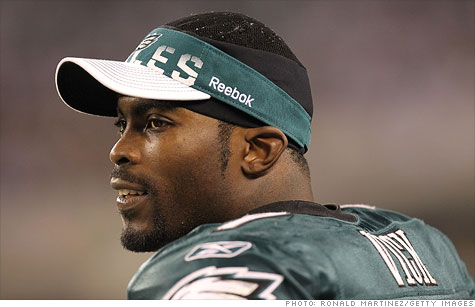 By all accounts, Vick is an extremely talented player. He is also an extremely controversial one. In 2007, he was convicted of animal cruelty in an illegal interstate dog fighting ring and spent almost 2 years in prison for his crimes. Not only did he lose his lucrative position as an NFL Quarterback as well as numerous product endorsements, he was also ordered to pay back over $20 million dollars to the Atlanta Falcons for a breach of contract. On top of the financial losses, he lost his overall popularity and good name, a price more valuable than wealth (Proverbs 22:1). To say Vick was at rock bottom would be an understatement. One day he is soaring as a Falcon. The next day he’s a grounded jail-bird.
By all accounts, Vick is an extremely talented player. He is also an extremely controversial one. In 2007, he was convicted of animal cruelty in an illegal interstate dog fighting ring and spent almost 2 years in prison for his crimes. Not only did he lose his lucrative position as an NFL Quarterback as well as numerous product endorsements, he was also ordered to pay back over $20 million dollars to the Atlanta Falcons for a breach of contract. On top of the financial losses, he lost his overall popularity and good name, a price more valuable than wealth (Proverbs 22:1). To say Vick was at rock bottom would be an understatement. One day he is soaring as a Falcon. The next day he’s a grounded jail-bird.
To animal lovers, he is hated – even five years later. To football fans, he is still loved – in spite of his past. For all of us, it makes for interesting conversation around the water cooler at work. What do we do with someone who fell to the bottom and has tried to do everything he can to climb back on top? Do we villain-ize someone for their past? I mean, don’t we all have a past too – even if it’s not as egregious? Must he still be shunned today for yesterday’s poor choices? Have we not all made poor choices at some point, even if we were adults when we made them? Vick served his time and is paying off the debt with his dime. Isn’t that what is required for restoration? Or do we believe the popular mantra that “A leopard can’t change his spots?” Most of us, deep down, do not want to believe that. If Michael Vick can’t change his spots, then what makes us think we can change ours?
For the record, I like dogs. I’m pro-animal. I don’t own a fur anything. But I’m also pro-grace and pro-second chances, particularly with someone who wants it. Too many professional athletes are poor role models. The Old Michael Vick would have been in that category. But how many pro-athletes try to reverse their past and redeem their mistakes? How many try to correct their wrongs and promote the cause they once worked so hard to destroy? I’m not condoning Michael Vick’s past or trying to minimize the crimes he perpetrated. But, I do applaud the time he spent and the time he spends trying to change not only his image but the evil industry he once profited from.
Near the end of his prison term, Michael Vick’s representatives approached the Human Society of the United States (HSUS) to see how Michael might be used to help their cause. Initially, they were very skeptical of his involvement, for obvious reasons. When asked why they didn’t choose a different celebrity to help combat this problem, they replied, “Michael Vick was a role model for many young people, and he lost everything because of what he did to dogs. His story is the strongest possible example of why dog fighting is a dead-end. Just as former drug addicts are able to reach people struggling with addiction, former dogfighters are some of the most effective voices against this crime. We realized the potential that Vick has to reach at-risk youth and pull them out of the quicksand of animal fighting…we decided that shunning Vick forever would do no good for any animal. He has expressed his remorse and his desire to help more animals than he harmed by being an advocate for the humane treatment of animals. Vick paid $1 million for the care and rehabilitation of the dogs at Bad Newz Kennels. Now he contributes his time and his voice to attacking the problem by reaching out to inner-city youth.”
THAT is the beauty of being at rock bottom for whatever reason you are there. Even if your foolish choices brought you there, you can make better decisions in the future to pick yourself up and put you in a position to help others. You can actually do more good than you ever did harm, if you can get the help you need and get on the right track. Michael Vick, as controversial as his past is, may be the best voice out there to speak against dog-fighting and animal cruelty.
Disagree with me? Then rip the book of Romans out of your Bible. While you are at it, remove 1 & 2 Corinthians, Galatians, Ephesians, Philippians, Colossians, 1 & 2 Thessalonians, 1 & 2 Timothy, Titus, and the letter to Philemon as well. Why? Because those 13 books of the New Testament were written by someone who (before he hit rock bottom) was actively trying to kill Christians. Before the Apostle Paul was a Bible writing, Christianity promoting, Jesus loving disciple, he was known as Saul – a massive persecutor of the Church and known executioner of Christians. God didn’t show grace because of Paul’s past. He showed grace in spite of Paul’s past. But isn’t that who grace is for? People who don’t deserve it? Grace has the power to change any man. This is what Newton was talking about in the aforementioned hymn, “Twas grace that taught my heart to fear and grace my fears relieved. How precious did that grace appear the hour I first believed.”
God can use squeaky clean people to speak His squeaky clean truth. But most of the time, He calls sinners to talk to other sinners about the dangers of sin. Who else is more credible to speak on such a topic? The best person to reach a prostitute is a former prostitute. The most qualified person to reach a murderer is someone who understands what it’s like to hide a body. The most credible person to reach a thief is the one who used to pick your pocket.
Have you been to rock bottom yet? What did you learn on your way down? What did you do to get back up? Who have you been able to help as a result of your experience? You are now uniquely equipped in a way you never were before. How are you using your new platform to help those on their way down or those who are having trouble getting back up?
Love him or hate him, Michael Vick is showing all of us how to hit rock bottom and get back up again. How many future dogs will be saved because of his fall from grace?
“Praise be to the God and Father of our Lord Jesus Christ, the Father of compassion and the God of all comfort, who comforts us in all our troubles, so that we can comfort those in any trouble with the comfort we ourselves receive from God.” – II Corinthians 1:3-4
“Things are tough all over, But I’ve got good news
When you get down to nothin’, You’ve got nothin’ to lose
Anyway, rock bottom, Is good solid ground
And a dead end street, Is just a place to turn around”
– Rock Bottom song, Wynonna Judd
